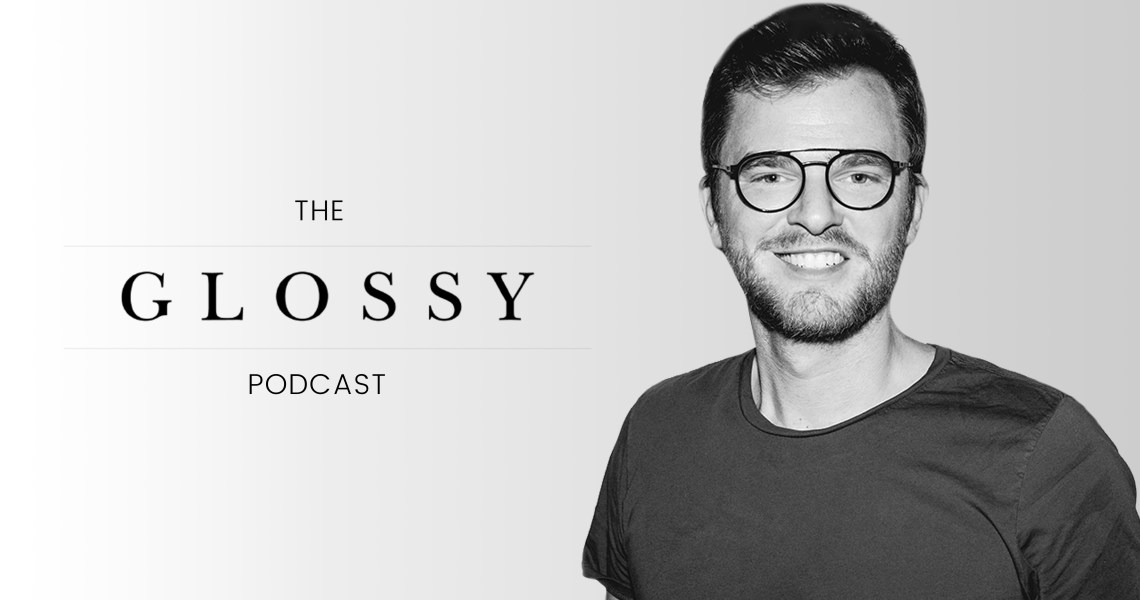Subscribe: iTunes | Stitcher | Google Play |Spotify
Mark Lynn knows what it takes to build direct-to-consumer brands.
After launching two successful DTC brands — Winc Wines and DSTLD — Lynn made the decision to stop building brands and start bringing them together. So in 2017, he co-founded Digital Brands Group in an effort to both bring promising brands to the consumer and help growing companies to scale.
“I think we see Digital Brands Group getting out as a small, public company, proving out that we can buy and build great brands. The nice thing about that format is that we can build to be a legacy,” said Lynn. “When we think about that format, about the big publicly traded companies like VF and LVMH and Tapestry, that’s the story that we want to be telling over 10 or 15 years.”
Currently, there are two brands under the Digital Brands Group umbrella — DSTLD, best known for denim. and suiting brand Ace Studios. Lynn said a few acquisitions will likely be necessary before the group can really spread its wings.
On this week’s episode of The Glossy Podcast, Hilary Milnes sits down with Mark Lynn, Digital Media Group’s co-founder and chairman, to talk about the complexities of the DTC ecosystem, the choice to take DSTLD public and the next steps for his growing group. Below are excerpts from the conversation, edited for clarity.
Ad position: web_incontent_pos1
Understanding the DTC ecosystem
“I think one of the big things a lot of people don’t talk about is that you used to be able to build a business in this space by factoring. You didn’t have the same massive working capital costs, and that’s one of the biggest barriers to entry in this space. You can’t sell your product until it’s sitting on your shelf, and it can’t sit on your shelf until you’ve bought it. And if you start growing really quickly, you have to have your raw goods backed up — that’s a very hard thing to do. But in the past, you’d be able to just show your line to some buyers, and if you got the PO’s, you could take them right to the bank, and the bank would ultimately pay for your product. That’s how some of these business grew so quickly and capital-efficiently. People look at our industry and think, ‘You’ve raised $30 million, and you’re not profitable. Where did it all go?’ Well, it’s a whole different ecosystem, but at the end of the day, direct businesses are better for the customer, and what’s better for the customer always wins out.”
Going public overseas
“We’ve gotten to the point where [going public] makes sense for us. We’re already dealing with a lot of the infrastructure issues that come with dealing with multiple investors, so the next natural stage for us is to list. We’re actually looking at doing that on the AIM, which is a sub-market of the London Stock Exchange, because we think that’s a great fit for us. Companies like Boohoo and Asos are listed on that exchange, so the investors are quite familiar with the business model, and it’s a much more supportive ecosystem for small and growing companies. Whereas the NASDAQ and New York Stock Exchange are still the best and the baddest in the world, you really have to be a billion-dollar company to get on there.”
Becoming the scale solution
“How we envision Digital Brands Group is allowing businesses to flourish in the things that are important for the customer. So, for example, getting the brand back to that product market fit stage and trying to alleviate the capital and management concerns. It’s also providing them with stock on a stock option plan that could actually work, if they do what they need to do over a five-year plan — providing them with a path. I think that’s underestimated for a lot of entrepreneurs. A lot of them are really good at saying, ‘You show me the way, and I’ll get there,’ but it can be very difficult at sub-scale in this space. Scale solves a lot of problems in these businesses.”




